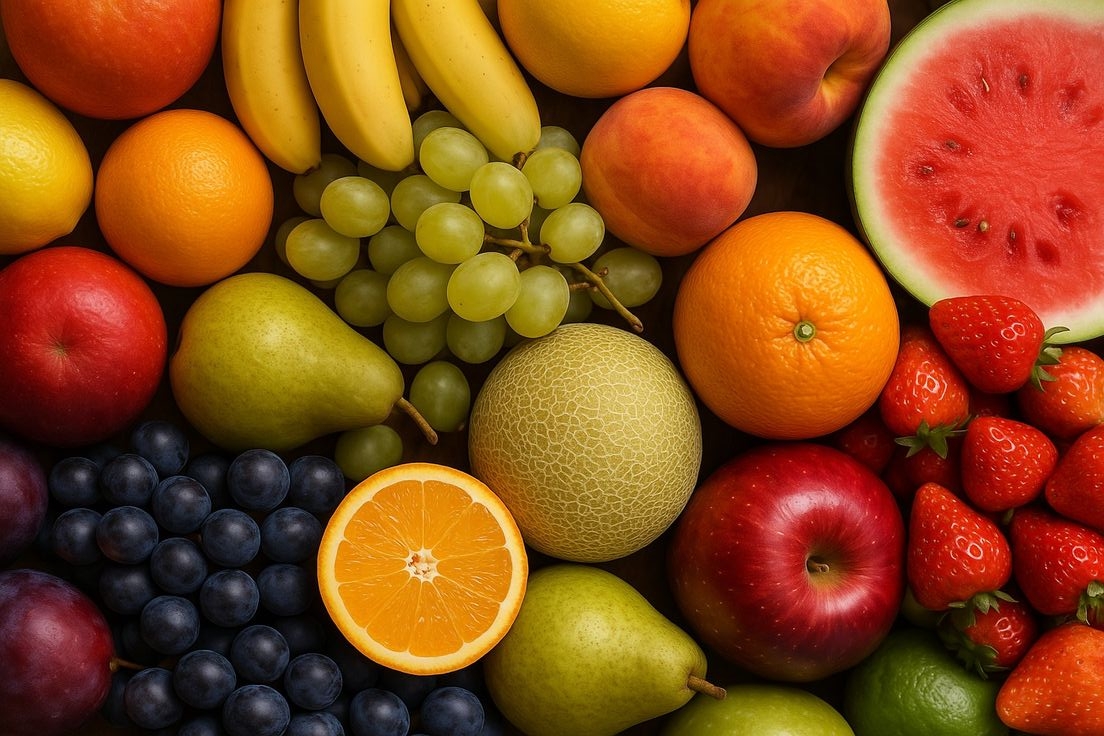In today’s wellness world, the word “sugar” often triggers concern. With good reason: excess sugar consumption, especially from processed foods and sweetened beverages, is linked to obesity, type 2 diabetes, and heart disease. But in the rush to cut sugar, many people start questioning even the healthiest sources — like fruit.
So let’s set the record straight: natural sugar in fruit is NOT the enemy.
Natural vs. Added Sugar: What’s the Difference?
Not all sugars are created equal. Here’s how they differ:
- Natural sugars occur naturally in foods like fruits & vegetables. In fruit, this is primarily fructose (along with glucose and sucrose).
- Added sugars are refined sweeteners added to foods during processing — like white sugar, high-fructose corn syrup, or brown rice syrup. These are common in sodas, cookies, cereals, and other packaged snacks.
Even though both types of sugar contain calories and can raise blood sugar, their impact on your health is very different due to the context in which they’re consumed.
Fruit Comes With Built-In Health Benefits
Whole fruit isn’t just sugar. It’s a complete nutritional package, rich in:
- Fiber – Slows down the absorption of sugar and prevents blood sugar spikes.
- Vitamins and minerals – Such as vitamin C, potassium, and antioxidants.
- Water content – Keeps you hydrated and fills you up.
- Phytonutrients – Plant compounds that protect your cells and support immunity.
This combination makes fruit a low-risk, high-benefit food. The fiber and water in fruit make it very hard to overeat, especially compared to processed snacks.
Plus, your body self-regulates: if you eat 4 bananas in a sitting, you’re likely too full to want dessert afterward. Try eating 5 apples and see if you’re still craving cake. That’s the natural safeguard of fiber and volume doing its job.
Compare that to a processed snack — say, a candy bar with 30g of added sugar — which is easy to consume in seconds and leaves you hungry for more – while also being extremely unhealthy .
Added Sugars = Empty Calories
Foods with added sugars often lack fiber, nutrients, and real satiety. They spike your blood sugar, fuel cravings, and lead to overeating without nourishment. This is the real danger — not a mango.
Research shows that diets high in added sugars (especially from sugary drinks and refined snacks) are associated with:
- Increased risk of heart disease
- Insulin resistance and type 2 diabetes
- Liver fat accumulation
- Weight gain and obesity
Whole fruits, on the other hand, are consistently linked with better metabolic health, lower risk of chronic disease, and better weight management.
Bottom Line: Eat the Fruit
If you’re worried about the sugar in fruit — don’t be. The health benefits of whole fruits far outweigh any concerns about their natural sugars. Unlike processed foods, fruit doesn’t encourage bingeing, blood sugar crashes, or nutrient depletion.
So go ahead — enjoy your watermelon, snack on grapes, add banana to your smoothie, and finish with a bowl of berries. There’s no real need to fear nature’s candy.
In short:
Natural sugar in fruit is not the same as the sugar in cookies or soda. Whole fruits are nutrient-dense, fiber-rich, and come with built-in protective benefits.
Stay away from the “protein bars” – Marketed as convenient, fitness-friendly snacks, they promise energy, muscle gains, or even weight loss. But don’t be fooled by the flashy labels and buzzwords.
Most protein bars are closer to candy bars than actual healthy foods.
Worry less about fruit, and focus more on cutting down ultra-processed, sugar-laden products.
It’s not about the calories – it’s about the chemicals.





 No products in the cart.
No products in the cart.